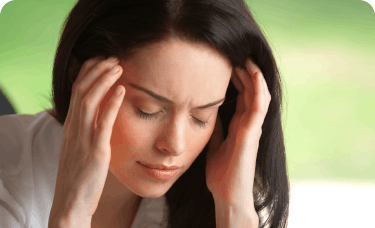Hypertensive Crisis and Hypertension Headache
A hypertensive crisis is a sudden, extreme elevation in blood pressure with a reading of 180/120 mm Hg or greater.7 This is considered a medical emergency because it can lead to a stroke, heart attack or other issues that may threaten the life of an individual.7 When an individual’s blood pressure is that high there may be collateral damage to the blood vessels themselves, as well as organs like the brain, eyes and kidneys.7
A hypertensive crisis may be caused by forgetting to take blood pressure medication, a negative interaction between certain medications or even a tumor on the adrenal gland.7 One of the symptoms of a hypertensive crisis is a severe headache, known as a hypertension headache.7 Other symptoms include:7,8
- Confusion
- Shortness of breath
- Blurred vision
- Anxiety
If you’ve never experienced a hypertensive crisis and a corresponding hypertensive headache, they may be disorienting and a little scary.7 If you know you have high blood pressure and you feel like your heart is racing and your head is pounding, check your blood pressure. If it’s 180/120 mm Hg or greater don’t hesitate to call your doctor or emergency care.7









